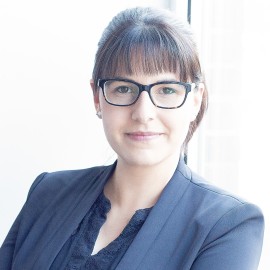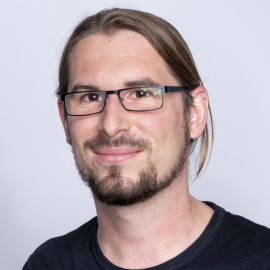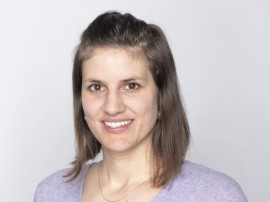Working closely with elementary school teachers, we are investigating how digital scaffolds can support pupils in open learning environments, such as makerspaces, in STEM education. We develop, test and evaluate digital tools to support self-regulated learning and to facilitate the participation of all children in innovative and equitable science and technology education.
To address pressing and complex problems a comprehensive and interdisciplinary set of skills is required. STEM education plays a vital role in this endeavor. Firstly, it provides a foundation of scientific and technological knowledge and understanding as well as an understanding of scientific and technological processes. Secondly, it promotes generic competencies, such as, for example, the so-called 4 c's of the 21st century skills: critical thinking, creativity, collaboration, and communication, as well as self-regulation skills. It is, therefore, imperative to facilitate the participation of all children in STEM education.
Learning to solve real world problems has proven to be challenging at school. Children are often overwhelmed by the complexity of tasks in open learning environments coping with ill-defined problems. Adequate guidance and support are key to success – not only to tackle complex problems, but also to keep up the children’s intrinsic motivation and curiosity. Guidance and support can be provided in a wide variety of forms addressing different learning difficulties: from explanations and visualizations to learning strategies and motivational support. Since the dawn of digitally supported learning and teaching, the potential of digital tools to support children’s learning processes while, at the same, relieving the teachers, is discussed among educators.
In Scafalle we investigate how digital tools can be used to support children in open learning environments, like makerspaces and inquiry learning, in STEM education. Using a design-based-research approach, we are collaborating closely with elementary school teachers to fully understand their as well as the children’s needs for an inclusive and inspiring learning environment. In a first step, we determine common challenges and learning barriers that children face in open educational settings. Together with the teachers we sketch possible solutions to the experienced challenges using design-thinking principles. In a second project phase, we will develop prototypes of digital scaffolds, which will be tested in several elementary school classes. We envisage multiple development and testing cycles to iteratively optimize the digital tools. Feedback from teachers and children is collected systematically by field observations, classroom videography, and short interviews. The third project phase includes the implementation of the Scafalle-tool in a larger number (approx. 8) of elementary schools. To ensure that the tool is anchored in the schools and that teachers can share their experiences, teacher-led learning circles focusing on the use of digital scaffolds in open and innovative STEM education will be established.
In collaboration with teachers, we aim at providing new insights to the following questions in the context of open and innovative STEM education settings:
What challenges and learning barriers do children face in such settings?
How can digital tools be designed to support learning of subject-specific and generic knowledge and skills of all children?
How does the use of digital scaffolds influence the children’s learning processes as well as their and the teachers’ motivation and emotions?
What are the personal and institutional conditions to successfully implement digital tools in the classroom?
Teachers and children will benefit from tailor-made and versatile digital learning aids to facilitate STEM learning of all children. The insights gathered during the development of the Scafalle tool will help school directors and authorities to establish a modern and innovative STEM education in Switzerland and beyond in an effective and lasting manner.






